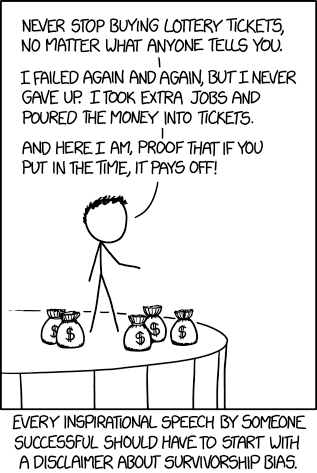Peter T
Senior Member (Voting Rights)
c) is certainly unethical. In terms of a) - the problem is that it's not a study of recovery stories, it's a study of a highly unrepresentative and biased sample of recovery stories that she seems to believe reflects recovery stories writ large.
I have been pondering my comparison of this study to the lottery. Undoubtedly it would be methodologically identical to look at how to solve individuals’ debt problems by selectively interviewing lottery winners, and then recommending buying lottery tickets when in debt as 100% of people winning over £500,000 pay off all their debts.

